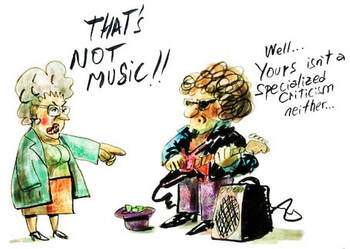 According to Eda Tang (Stuff – 24 March 2023), NZ Opera’s production of its newly commissioned The Unruly Tourists “is everything I want to see happen to classical music”. She goes on: “Too long has opera held onto tradition, languages that people pretend to understand, and upper-middle class etiquette.” I suppose that no offence is intended by Eda Tang’s rather confrontational tone, but ‘offensive’ is exactly how the phrase “languages that people pretend to understand” sounds. (We’ll overlook “upper-middle class etiquette” except to suggest that Ms Tang should witness the remarkably diverse audience mix at most opera performances.) But do first-language English-speaking operagoers really ‘pretend’ to understand the languages when Verdi and Puccini are sung in Italian, or Wagner and Strauss in German, or Bizet and Berlioz in French? I certainly wish I was more familiar with those languages when attending such operas, and even more so when watching international movies on Netflix, which I do rather often. But, like those movies, opera performances almost always come with surtitles or even, in many theatres, a choice of languages displayed on the back of the seat in front. None of us ‘pretend’ to understand other languages in these situations and even when we do (my French isn’t too shabby at a performance of Carmen), the surtitles are still helpful, even when the opera is in English. Does Ms Tang not realise that operas are written in the language of their creators (apart from an initial period of dominance by the Italians, who created and developed the genre – what a debt we owe them!)? As an experienced reviewer myself, I try to avoid making assumptions about things that I’m unsure of or unfamiliar with, but reviewer Tang confidently asserts that The Unruly Tourists “moves opera into modern contexts”, as if to suggest that this is something new. She appears completely unaware of some very significant evidence that totally annihilates such an assertion. Opera composers, librettists and directors have been moving opera “into modern contexts” for centuries, and continue to do so even more in our own time. Handel’s exceptionally popular eighteenth-century operas (frequently based on characters and historical events from ancient civilisations, and written by a German composer in Italian for an English-speaking audience) were, from the outset, staged with contemporary costumes and sets, and with significant and deliberate references to the social and political climate of Handel’s own era. How often since then have we seen Handel’s operas or, say, La Traviata or La Bohème or Cosi fan Tutte or the Ring Cycle set in our own or recent, or even a future or fantasy time? Well, I and multitudes of others have, but it seems that Ms Tang has not. And the whole reason that those operas have survived and remain hugely popular (unlike hundreds of others, pertinent and fashionable at their time, but now forgotten) is because of their enduring and universal relevance. As the great Scottish director Robert Carson says, regarding his penchant for staging operas and plays in modern dress and settings, “We mustn’t let the audience off the hook; people need to see themselves portrayed on the stage”. Such operas may not always or easily appeal to the faint-hearted who are unwilling to delve deeper to uncover their truths and riches, or to seekers of a quick-and-superficial entertainment fix, but their spiritual and artistic depths and resonances are at the heart of our humanity and broader cultural consciousness. Even more importantly, Eda Tang seems wholly oblivious of the vast range of operas written in English and to the huge number written in a wide range of languages in our own time. Apparently she has missed the recent innovative and thought-provoking productions by Christchurch’s Toi Toi Opera, which not only put twentieth century English language operas in front of us, but demonstrate some truly imaginative ideas on how to make the genre of opera directly relevant to its audiences. Within the world of ‘classical’ music, depending on how you interpret that word (It is, after all, just a label coined to try to identify certain characteristics of a body of musical works), there have been many recent innovations that blur the traditional lines between opera, sonata, symphony and all manner of other forms that have acquired sub-labels intended to distinguish particular characteristics. The concept of ‘opera’ has acquired an understanding of being a music-theatre piece involving a particular style of singing and including an orchestra, and there are many new examples that easily fit that concept. Opera companies and music festivals all over the world have brought us a hugely diverse range of new operas – to name a few of the more high-profile examples: Thomas Adès The Exterminating Angel, John Corigliano’s The Ghosts of Versailles, Philip Glass’s The Voyage, Satyagraha and Akhnaten, Tan Dun’s The First Emperor, John Adams’ Nixon in China, The Death of Klinghoffer, and Doctor Atomic, Jake Heggie’s Dead Man Walking, Anthony Davis’s X: The Life and Times of Malcolm X, Nico Muhly’s Two Boys and Marnie, Kaija Saariaho’s L’Amour de Loin – the list is endless! And in the last little while, New York’s Met Opera has commissioned and staged Ricky Ian Gordon’s Intimate Apparel, Terence Blanchard’s Fire Shut Up in My Bones, Matthew Aucoin’s Eurydice and, most moving and extraordinary of all, Kevin Puts’s The Hours. And here in New Zealand, Kenneth Young’s The Strangest of Angels was premièred less than a year ago. These operas range in their subject matter from political and social subjects, to plots exploring racism, sexuality, ethical dilemmas and so much more. Not having had an opportunity to see NZ Opera’s The Unruly Tourists myself, I cannot comment on Eda Tang’s assessment of its merits, but based on the short promotional and news-media audio-visual clips that I’ve seen, when Tang states “If you like The Book of Mormon, King George III from Hamilton the musical and are a self-professed JAFA, you’ll probably enjoy The Unruly Tourists”, I’d say she’s probably bang on the nail in terms of theatrical and musical type. But her reference to being “a self-professed JAFA” surely trivialises the creators’ aspirations by parochialising the whole shebang. And would either of those two examples (The Book of Mormon and Hamilton) pretend to be opera? Both are consistently and universally referred to as ‘musicals’ or ‘musical comedies’, so why is The Unruly Tourists referred to as an ‘opera’? Is it because of its being produced by an opera company? Or is because people like the reviewer just want it to be one? And when Ms Tang asks “did they really just set those words to [sic] an opera?” and then goes on to assert that only in Aotearoa would you hear certain colloquialisms that she quotes “set into [sic] classical music”, well, I guess there’s no harm in blurring the boundaries if you’re clear about the characteristics of the different genres; but I’d certainly take issue with any idea that such colloquialisms are in any way new to musicals, opera, or any other theatrical form. But why does she call it ‘classical music’? It may well be (. . . or not?), and anyway, what does it matter? But Tang appears to want to take aim at her skewed idea of ‘classical music’. In any case, she seems to be aligning The Unruly Tourists with a different musical genre with which she has a much easier affinity. So, if that is what she wants “to see happen to classical music”, I can only infer that the statement at the start of her review, and which I’ve used as my headline, indicates a rather self-important and condescending antipathy to a huge body of the profoundly eloquent and powerful musical treasures of our diverse world. And many of those treasures are riotously comic; that is part of their profundity. Finally, as for suggesting that we can enjoy a cheap night out at The Unruly Tourists rather than “fork out hundreds to go to watch La Traviata”, I guess the same applies to the recent visits by Ed, Elton and Rod. Again – is Eda Tang’s ‘review’ deliberately offensive, or is it just sloppy journalism? Can we no longer expect genuinely informed, considered, and knowledgeable evaluation of the performing arts from some of our mainstream media?
1 Comment
Amanda
27/5/2024 22:39:46
brooo.... lol. you didn't even see it. stop flapping your lips
Reply
Leave a Reply. |
AuthorTony Ryan has reviewed Christchurch concerts, opera and music theatre productions and many other theatre performances since the mid 1990s. ReviewsTony has presented live and written radio reviews of numerous concerts, opera and other musical events for RNZ Concert for many years. An archive of these reviews can be found at Radio New Zealand - Upbeat
His reviews of opera, music & straight theatre and numerous reviews of buskers and comedy festival performances are available at Theatreview. An archive of Tony’s chamber music reviews is held at Christopher’s Classics He has also reviewed for The Press (Christchurch). Links to Tony's Press reviews are listed below: 2024 Songs for Helen – Music by Chris Adams 2022 A Barber and Bernstein Double Bill – Toi Toi Opera The Strangest of Angels – NZOpera Will King (Baritone) and David Codd (Piano) – Christopher's Classics 2019 Ars Acustica – Free Theatre Truly Madly Baroque – Red Priest The Mousetrap – Lunchbox Theatre Iconoclasts – cLoud Last Night of the Proms – CSO 2018 An Evening with Simon O’Neill NZSO Catch Me If You Can – Blackboard Theatre Brothers in Arms – CSO Fear and Courage – CSO Sin City – CSO Don Giovanni – Narropera at Lansdowne Mad Hatter’s Tea Party – Funatorium Weave – NZTrio Tosca – NZ Opera 2017 Sister Act – Showbiz Broadway to West End – Theatre Royal Chicago – Court Theatre Tchaikovsky Symphony No. 5 – CSO Homage – CSO Last Night of the Proms – CSO SOAR – NZTrio Pianomania – NZSO Rogers & Hammerstein – Showbiz Songs for Nobodies – Ali Harper The Beauty of Baroque – CSO Travels in Italy – NZSO Archives
February 2024
Categories |

 RSS Feed
RSS Feed
